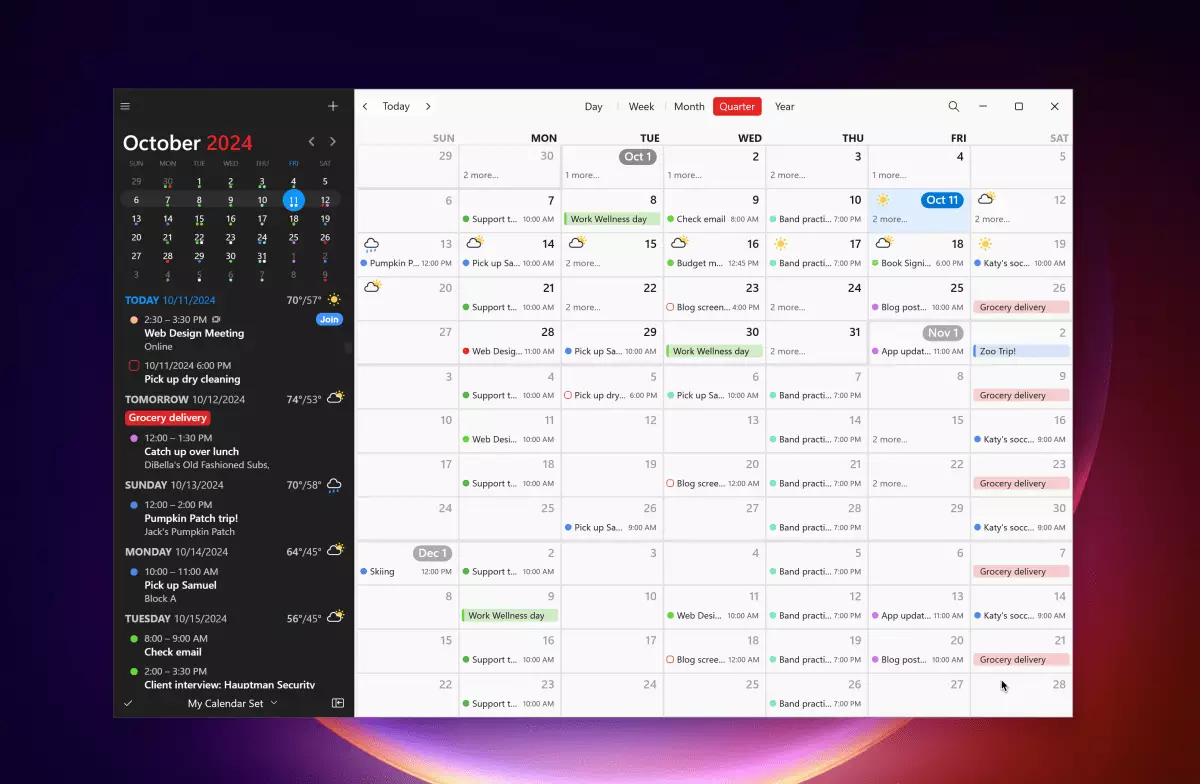In a crowded space of calendar applications, where many options come and go, Fantastical stands out as an exception. Instead of fading away after making its initial splash, Fantastical has consistently evolved since its inception in 2011, maintaining its relevance and user engagement. With its recent launch on Windows, this robust app signals a new phase in its journey that could expand its user base and meet the diverse needs of contemporary professionals.
Fantastical was initially developed for macOS, offering an innovative, user-friendly experience that made scheduling events enjoyable and efficient. Over the years, its parent company, Flexibits, has worked tirelessly to improve the app, continually incorporating user feedback and technological advancements. Each update has introduced new features and enhanced user experiences, gradually transforming it into a multi-platform application. As of now, Fantastical is accessible on macOS, iOS, and watches, with its recent Windows release showcasing Flexibits’ commitment to accessibility and user satisfaction.
The decision to include Windows in its supported platforms marks a significant turning point for Fantastical. Co-founder Michael Simmons expressed that despite initial reservations about developing a Windows application, they recognized that a considerable segment of potential users remained unserved. By adapting Fantastical for Windows, they embraced a larger audience and acknowledged the reality of cross-platform functionality in a world where professionals often juggle multiple devices.
One of the standout features of Fantastical is its ability to integrate various calendar accounts, such as Google Workspace, Microsoft 365, and iCloud. This capability is crucial for users who navigate different environments—be it personal, academic, or professional. The seamless integration allows users to manage their schedules without switching between various apps or interfaces, streamlining the planning process.
In a work culture increasingly defined by the need for efficiency and time management, having all calendars centralized within a single app provides a significant advantage. Simmons highlighted how the diversity of operating systems in the workplace necessitated a cross-platform solution, reinforcing the goal of “better productivity for everyone.” This feature is especially appealing for users who rely on multiple calendars for personal and professional commitments.
Fantastical’s design integrates several intuitive features that set it apart from conventional calendar apps. For example, its ability to understand natural language is a notable asset. Users can simply type requests, such as “Lunch with Tim Cook on Tuesday at Caffè Macs,” and the app will intelligently parse the information to create an event that includes the desired details. This capability not only saves time but also eliminates the tedious clicking and manual entry often required in traditional calendar software.
Moreover, the introduction of the “Openings” feature demonstrates Fantastical’s responsiveness to users’ needs for event planning and scheduling. This functionality allows users to create event links with RSVP capabilities, making it easier to coordinate gatherings and meetings. Given the landscape of remote work and virtual events, features like these enhance collaborative efforts in both personal and professional contexts.
As Fantastical strides into the world of Windows, the company plans to maintain parity across all platforms. This multi-faceted approach is crucial as users increasingly toggle between devices and operating systems. Fantastical’s move to synchronize updates across macOS, iOS, and Windows ensures that no matter where users engage with the app, they will have access to the same features and functions.
However, with great opportunities come challenges, particularly in navigating competitive markets. While Simmons appears firm that Fantastical may not take the plunge into Android, it raises questions about the strategic vision of Flexibits. Maintaining focus on a few key platforms has its advantages, but rigid boundaries might prevent broader audience engagement in the long run.
The introduction of a paid subscription model, which unlocks premium features for all platforms at a competitive rate, adds potential for consistent revenue. This allows Flexibits to reinvest in product development, ensuring that Fantastical continues to evolve and improve.
The journey of Fantastical reflects both resilience and adaptability in an ever-changing digital landscape. Its growth from a niche Mac application to a multi-platform calendar powerhouse serves as a testament to the importance of user-centric development. As the app finds its footing in the Windows ecosystem, it remains poised to cater to an expansive audience eager for smart technological solutions in time management. The future seems bright for Fantastical, a tool that aspires not just to organize time, but to optimize the way we live and work.

